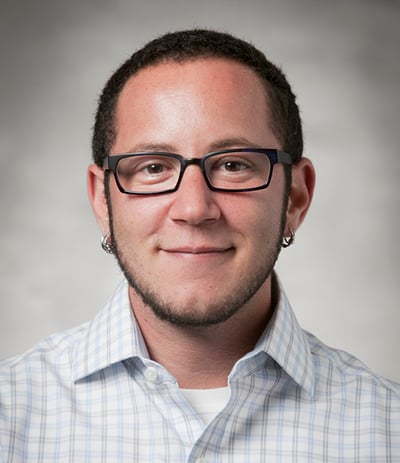stef m. shuster is an assistant professor in Lyman Briggs College and the Department of Sociology. This faculty voice has been adapted from Lyman Briggs College.

I spend much of my professional life teaching about and researching gender-based inequalities in science and medicine. My academic work was driven by my own experiences as a queer, trans and nonbinary person who spent years trying to find a knowledgeable, competent or even mildly affirming medical professional.
I started interviewing medical professionals about their experiences working with trans people. This study eventually turned into a book, “Trans Medicine: The Emergence and Practice of Treating Gender,” where I examine the historical and contemporary contexts that shape the murky evidence, expansive medical authority and vast uncertainty that pervades trans medicine.
Seeing someone come into their own
Amy, a gynecologist, became a bit weepy in the interview when she shared: “The rewards you get from watching a person develop, watching them grow up and grow into their own skin. And then they [pause] go out into the world and are successful and live their life. That is the joy.”
Learning from clients
Brandon, a psychologist, was also quite moved while sharing his joyful experiences working with trans and nonbinary people: “The joys are [pause] being blown away by people. The best of human qualities and potential you get to witness in action. You get to see people have the most incredible resilience, and most incredible resourcefulness and creativity, and figure out how to do things that I am too chicken to do.” As he reflects, Brandon has learned a lot from witnessing his trans and nonbinary clients’ empowerment and finding strategic workarounds to oppression in everyday life.
Personal fulfillment
In prioritizing caring for patients, regardless of their gender identities, Kim, a family physician, humbly suggested: “I see patients who come to me after going to multiple providers who have said that they can't have hormones. Some of them are at their wit’s end. But I'm not doing these amazing things. I'm just saying, ‘I would really like to take care of you’ and providing patients with what they should be able to get from any doctor.”
Becoming a better doctor
Martha, a family care provider, shared: “The more I worked with trans people, I became a better doctor. It’s hard. But I learned how to listen to my patients. And as hard as it is, to not make assumptions about them.” Martha added that she was able to bring this way of patient care into all her interactions and, “learn more about my patients’ needs and ask better questions.” Her work with trans people helped her become a better doctor.
Within these quotes, we see how providers are human, too. They offer a moment of hope when sometimes the medical establishment can feel so disappointing for marginalized people who experience the blunt edge of medical bias and harm. It is within their joy where we might find stronger advocates for all patients. We can learn what their patients have taught them about being compassionate, empathetic and mindful doctors, even when faced with vast uncertainty and feeling unmoored in an area of medicine unfamiliar to most medical professionals.